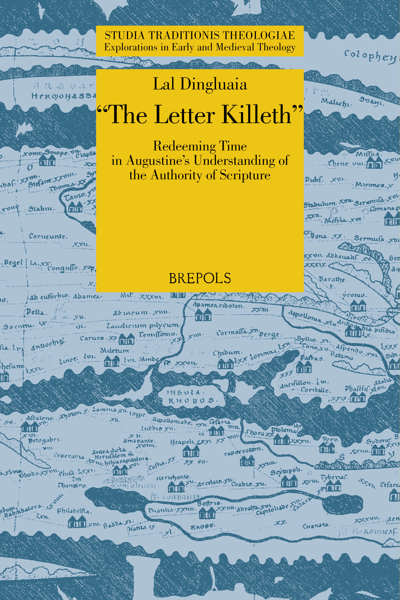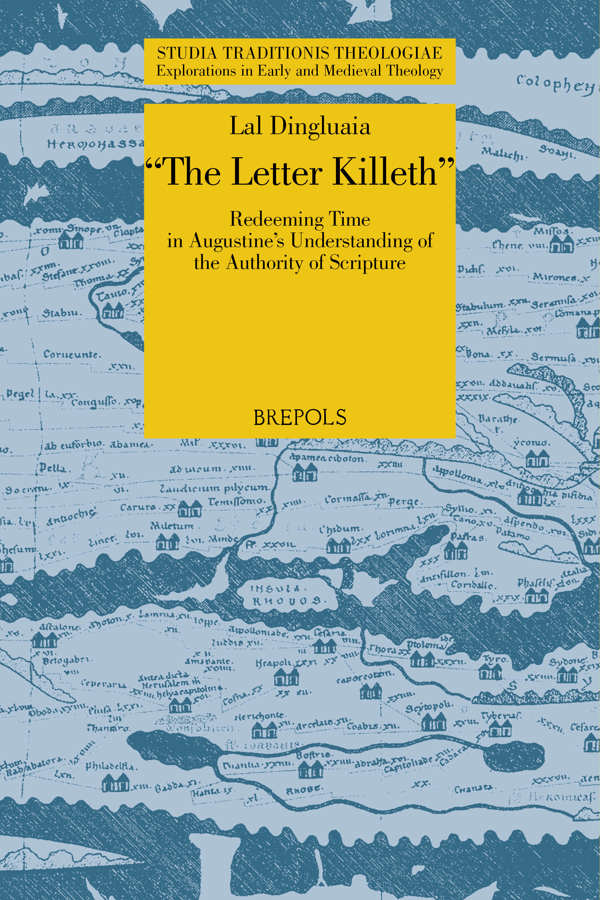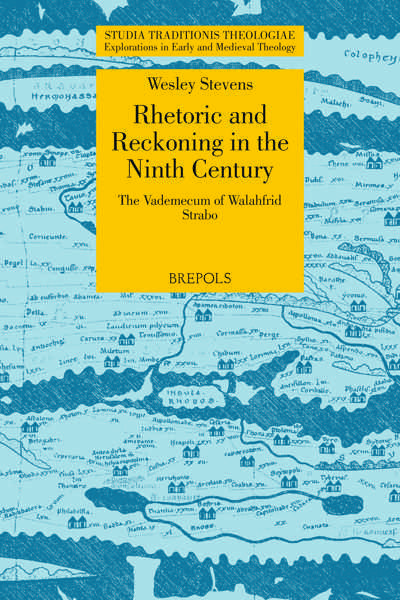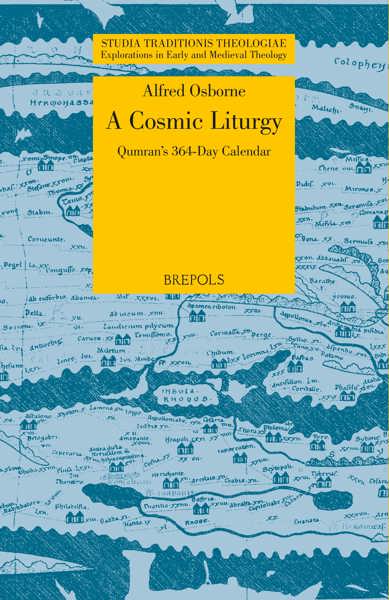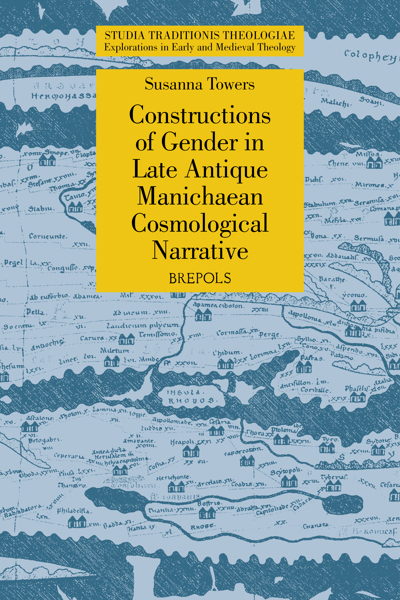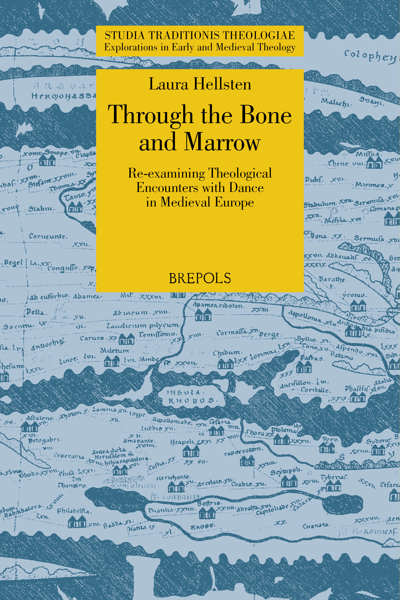
"The Letter Killeth"
Redeeming Time in Augustine’s Understanding of the Authority of Scripture
Lal Dingluaia
- Pages: 217 p.
- Size:156 x 234 mm
- Language(s):English
- Publication Year:2022
- € 65,00 EXCL. VAT RETAIL PRICE
- ISBN: 978-2-503-60116-8
- Paperback
- Available
- € 65,00 EXCL. VAT RETAIL PRICE
- ISBN: 978-2-503-60117-5
- E-book
- Available
Has Scripture authority for Christians today? Forged by the challenges of his own time, here is Augustine’s timeless answer.
"The extensive use of materials and research in this book is highly valuable and solid. However, the aspect of time, which is a crucial part of the theme, does not seem to be explained very clearly. (…) Overall, the content of this book is somewhat fragmented. It is also challenging to discern how much Augustine’s unique view of time played a role in his arguments. Therefore, I would recommend this book to readers who are particularly interested in the authority of Scripture. If someone is motivated to understand the relationship between Augustine’s theory of time and salvation, it might be more helpful to explore other options." (Zinan Zhang, in Augustiniana, 73/2, 2023, p. 373-376)
Lal Dingluaia is an Ordained Minister of the Presbyterian Church of India. After finishing his PhD from the University of Nottingham, he teaches Christian Theology at the Aizawl Theological College, India.
The experience of time is always momentous and stimulating to Augustine’s theological reflection. This book asserts that even Augustine’s concept of the authority of Scripture was embedded in his awareness of time. This “awareness” was rooted in the tension between the “already” and “not yet” of the “last days” that permeated the entire New Testament theological outlook.
This does not mean that it is reflections on time that is the determining feature of a particular complex debate, or the origin of a particular work in Augustine’s corpus. However, this work argues that “time” is a factor which needs to be taken into greater account than scholarship heretofore has done. Accordingly, the author specifically delineates how Augustine’s experience of time as a living, ongoing and creative tension critically determined his theological stances towards scriptural authority.
The book shows how Augustine’s awareness of this temporal tension was roused by the acceptance of his own temporality and creaturehood which brings to the fore the importance of the incarnate Christ. Exploring how Augustine and his contemporaries grappled with the existential implications of this tension in time, this work asserts that the authority of Scripture is not the authority of “the Book” in the modern sense but is related to more complicated sources of authority that are linked to this specific notion of time.
Preface
Abbreviations
Introduction
Methodological considerations
Outline of the work
Chapter 1:
“Nisi Me Catholicae Ecclesiae Conmoueret Auctoritas” : Authority, Tradition and Time
1. Authority in common parlance today
2. Authority in antiquity
3. Tension of “the time” in aureum saeculum and consummatio saeculi
4. Trado and the adaptation of auctoritas in the early church
5. After tempora christiana: Devolution of traditions and authority
Concluding remarks
Chapter 2:
“Si Quam Dubitationem Attulerit Latinorum Interpretum Infinita Uarietas” : Physical Evolution of the Scriptures and its Theological Implications
1. Vetus Latina – A brief sketch of Augustine’s “common edition” of the Scriptures
2. The Septuagint, Vetus Latina and Hebraica Veritas
3. The Vetus Latina and traditions of the church regarding the Septuagint
4. Emergence of the “New Testament” and the notion of a “Complete Canon”
Concluding remarks
Chapter 3:
“Our Hearts are Restless until they Rest in You” : The Longing for the Fullness of Time in the Confessiones
1. The ambivalence of authorities in Augustine
2. Augustine’s tryst with the authority of Scripture
3. Discerning the Principle behind the authority of Scripture
4. Implications of Ambrose’s Principle in Augustine’s reading of the Scriptures
Concluding remarks
Chapter 4:
“Exercet Autem Hoc Tempore et Purgat” : Discerning the Signs of the Time in the De doctrina Christiana
1. Tyconius and the socio-political and religious context of the “Donatist” Controversy
2. Discerning the underlying theological issue in the “complex” Donatist Controversy
3. Engaging Tyconius’s Liber Regularum in the De doctrina Christiana
4. Fitting Tyconius’s Liber Regularum into Augustine’s wider exegetical concerns
Concluding remarks
Chapter 5:
“Instead of doing what I had asked you, you thought up a new argument” : The Emergence of Paul in the Correspondence between Augustine and Jerome
1. The “Great Prefaces” to the Correspondence
2. Jerome and the notions of authority in the Correspondence
3. Augustine and the notion of scriptural authority in the Correspondence
4. From signa to res in the “new argument”
5. Humility, caritas and authority
Concluding remarks
Chapter 6:
“Ea ipsa est Simplex Fides, qua Credimus” : Retrieving Paul Through the book of Genesis
1. “Paul” of the Manicheans
2. Augustine’s early responses to the Manicheans
3. Retrieving Paul through the book of Genesis
Concluding remarks
Chapter 7:
“There we shall rest and see …” : Beyond “Time” and “the Authority of Scripture” in the De civitate Dei
1. “Rome” as an Ideological Construct
2. “Eternal Rome” in the “collective” and “personal” memories: Reading Confessiones as a subversive literary device
3. Of heroes and martyrs, guardians and sanctuaries: Interrogating Rome via Milan
4. What is time? Discerning the Authority of Scripture in the De civitate Dei
Concluding remarks
Chapter 8:
Not “perfection” but “progress towards the better” : Retractationes as the epitome of “crede ut intellegas”
1. The indispensability of the Scriptures
2. The human aspects of the Scriptures
3. Retractationes as the epitome of crede ut intellegas - The theological basis and implications of “progress towards the better” in Augustine’s scriptural odyssey
4. Beyond time, beyond “the Authority of Scripture”
Conclusions
Bibliography
